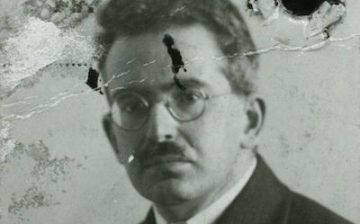 Samantha Rose Hill in the LA Review of Books:
Samantha Rose Hill in the LA Review of Books:
WHEN HANNAH ARENDT escaped the Gurs internment camp in the middle of June 1940, she did not go to Marseilles to find her husband Heinrich Blücher — she went to Lourdes to find Walter Benjamin. For nearly two weeks they played chess from morning to night, talked, and read whatever papers they could find.
Arendt and Benjamin met in exile in Paris in 1933 through her first husband, Günther Anders, who was a distant cousin of Benjamin’s. They would frequent a café on the rue Soufflot to talk politics and philosophy with Bertolt Brecht and Arnold Zweig. And while Arendt’s marriage to Anders didn’t last, her friendship with Benjamin grew and flourished during the war years.
Arendt hesitated leaving Benjamin in Lourdes. She knew he was in a wobbly state of mind, anxious about the future, talking about suicide. Benjamin feared being interned again, and he had difficulty imagining life in the United States. Arendt wrote to Gershom Scholem that the “war immediately terrified him beyond all measure” and “[h]is horror at America was indescribable.” His strained relationship with Theodor Adorno and Max Horkheimer at the Institute for Social Research (also known as the Frankfurt School) left him in a state of financial precarity. The tenuous flow of correspondence conducted through networks of friends and letters (when they arrived) complicated matters more, leaving one dependent upon time itself. Benjamin, already an anxious man, stopped going out and “was living in constant panic.”
More here.
